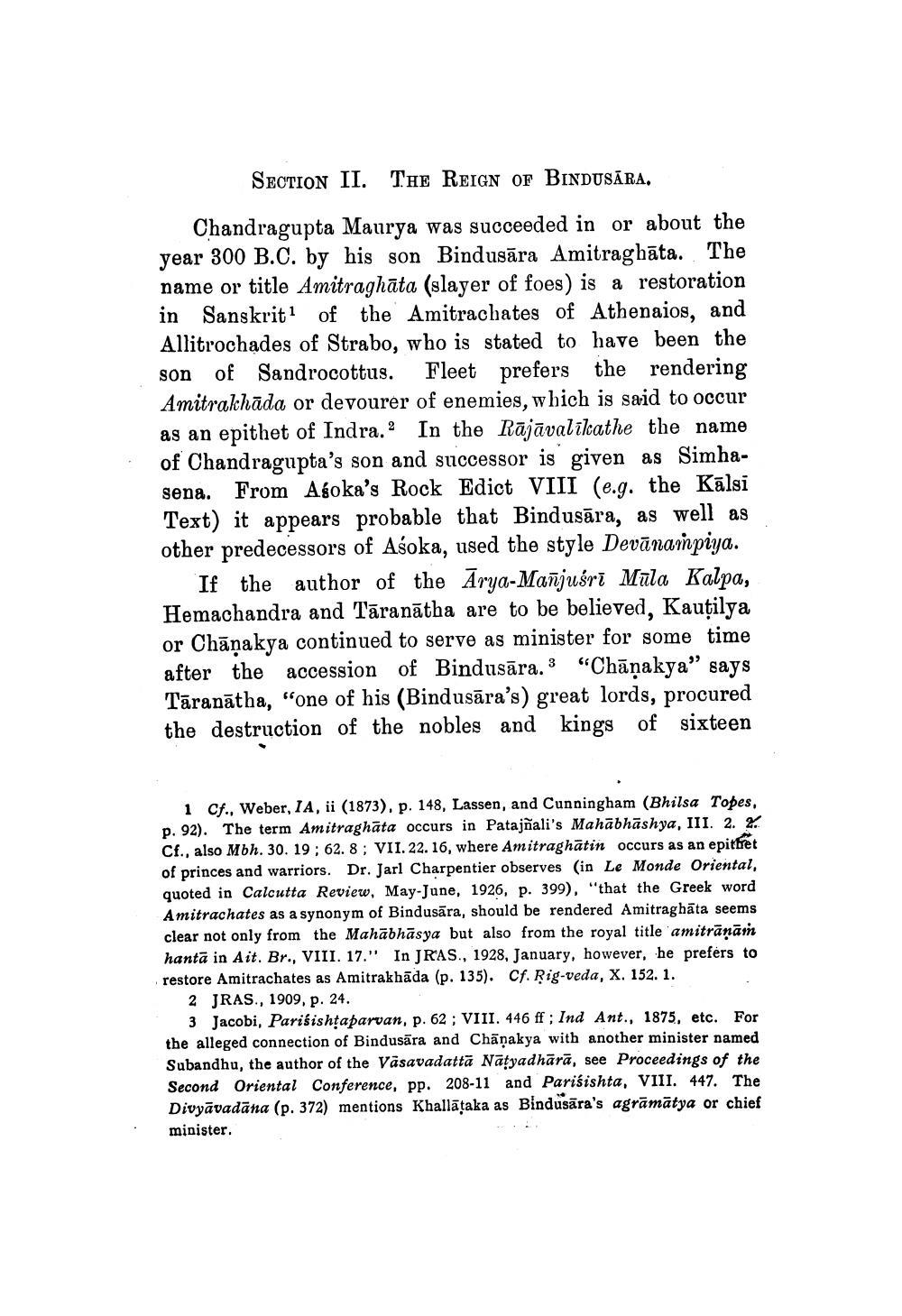________________
SECTION II. THE REIGN OF BINDUSĀRA.
Chandragupta Maurya was succeeded in or about the year 300 B.C. by his son Bindusāra Amitragbāta. The name or title Amitraghāta (slayer of foes) is a restoration in Sanskrit of the Amitrachates of Athenaios, and Allitrochades of Strabo, who is stated to have been the son of Sandrocottus. Fleet prefers the rendering Amitrakhāda or devourer of enemies, which is said to occur as an epithet of Indra. In the Rājāvalīlcathe the name of Chandragupta's son and successor is given as Simhasena. From Asoka's Rock Edict VIII (e.g. the Kālsi Text) it appears probable that Bindusāra, as well as other predecessors of Asoka, used the style Devānampiya.
If the author of the Arya-Manjuri Μπλα Καιρα, Hemachandra and Tāranātha are to be believed, Kautilya or Chāṇakya continued to serve as minister for some time after the accession of Bindusāra.3 "Chāṇakya” says Tāranātha, "one of his (Bindusāra's) great lords, procured the destruction of the nobles and kings of sixteen
1 Cf., Weber, IA, ii (1873). p. 148, Lassen, and Cunningham (Bhilsa Topes, p. 92). The term Amitraghāta occurs in Patajñali's Mahābhāshya, III. 2. 2. Cf., also Mbh. 30. 19; 62. 8 ; VII. 22. 16, where Amitraghātin occurs as an epithet of princes and warriors. Dr. Jarl Charpentier observes (in Le Monde Oriental, quoted in Calcutta Review, May-June, 1926, p. 399), "that the Greek word Amitrachates as a synonym of Bindusāra, should be rendered Amitraghāta seems clear not only from the Mahābhāsya but also from the royal title amitrāņām hantā in Ait. Br., VIII. 17." In JRAS., 1928, January, however, he prefers to restore Amitrachates as Amitrakhāda (p. 135). Cf. Rig-veda, X. 152. 1.
2 JRAS., 1909, p. 24.
3 Jacobi, Parißishtaparvan, p. 62 ; VIII. 446 ff; Ind Ant., 1875, etc. For the alleged connection of Bindusāra and Chāņakya with another minister named Subandhu, the author of the Vasavadattā Nātyadhārā, see Proceedings of the Second Oriental Conference, pp. 208-11 and Parisishta, VIII. 447. The Divyāvadāna (p. 372) mentions Khallātaka as Bindusāra's agrāmātya or chief minister.




